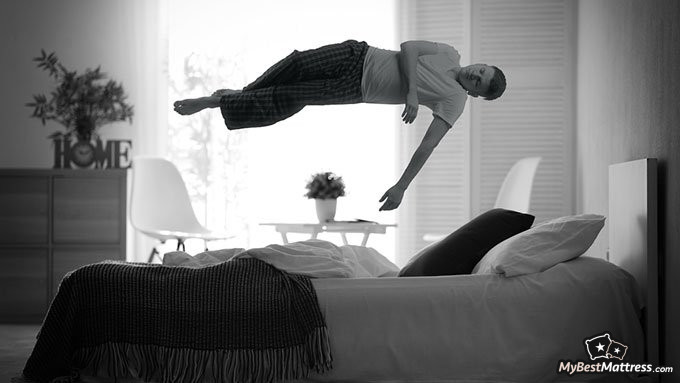

But try to remember – sleep paralysis is generally harmless and nothing to be afraid of. Indeed, those hallucinations feel like a waking nightmare, and it’s what makes sleep paralysis a terrifying experience for many people. Other types of hallucinations can be the feeling of an intruder’s presence or vestibular-motor hallucinations already mentioned, where people feel they are moving, floating or flying. Olfactory: less common, some people have also experienced different smells during sleep paralysis, although the intensity and familiarity may vary.Auditory: people also claim hearing voices like whispers, screams, laughs or noises like footsteps, knockings or even someone breathing.Other tactile hallucinations may be scratches, vibrations or the feeling of someone holding the hands of the paralyzed. Tactile: the most common type of hallucination, this is related to the feeling of pressure in the chest that people may experience during sleep paralysis (incubus hallucinations).Some others claim to have seen flashes, and lights moving around. Visual: people have reported the presence of one or several dark figures, shadows or blurry human figures standing by the bed.The hallucinations connected to sleep paralysis can be: This is the main reason people may panic or get anxious, as they find it impossible to defend themselves or run away. However, this is part of the vivid hallucinations that can occur during sleep paralysis.īesides the inability to move, one of the most common symptoms of sleep paralysis are vivid hallucinations – people experience something that isn’t actually happening. Other people may experience an out-of-body experience, feeling like they’re floating and looking at themselves.Some experience suffocation or breathlessness due to the low activity of the breathing muscles during REM sleep.The level of awareness, for example, varies: from completely awake and aware of the surroundings to partial awareness.The sensation can last for several minutes, however, sleep paralysis episodes may be experienced differently from person to person: Interpretation of sleep paralysis in different culturesīeyond symptoms: what does sleep paralysis feel like?Īs the name suggests, sleep paralysis is the inability to move even if you feel wide awake.Beyond symptoms: what does sleep paralysis feel like?.Frequent, or more severe episodes, however, can cause intense anxiety, especially around bedtime, resulting in sleep deprivation and in extension potential health problems. As explained in our previous article, sleep paralysis is usually nothing to be worried about. Perhaps trapped in a terrifying hallucination. Imagine a state where you are both partially asleep and awake.

Sleep Cycle alarm clock > About Sleep > Sleep Paralysis Understanding sleep paralysis: what does it really feel like? What are the risk factors?


 0 kommentar(er)
0 kommentar(er)
